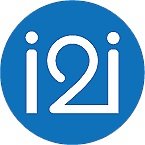Valuing Workplace Diversity
Diversity Awareness training for staff and managers
Respect and Inclusion is key to any successful Diversity program
Build awareness and encourage action
Staff, Manager and “Diversity team leader” training sessions
Forms, checklists, policies, and sample programs are included
Train 100 people for only $850 - Why pay more?
Great online diversity training at an affordable price. Click below for a two-minute overview
99% of clients love our training - but don’t take their word for it - try a FREE TRAINING session on us!
Valuing Workplace Diversity a Complete Program
Valuing Diversity refers to the principles, practices, concepts and policies in the workplace or community that value the skills people bring to the table. Valuing diversity requires not excluding individuals because of their personal characteristics such as race, gender, age, sexual orientation, physical abilities, socioeconomic background, or religion. There are multiple benefits an organization should expect to achieve. The objectives of diversity programs are to celebrate diversity, engage employees from diverse backgrounds so everyone thrives in the workplace or community. actively promote equity, and foster inclusively to enhance creativity and innovation.
Diversity programs are getting a lot of heat lately. But the objectives of a diversity program are not out of sync with the employer’s legal responsibilities to create a fair and consistent workplace. This training advocates for the benefits and outcomes of a diversity program. We use common-place situations in the test scenarios. Trainees come away with a sense of the importance of fairness and consistency and how everyone benefits from these concepts in an organization.

Valuing Workplace Diversity program
Session A: Awareness training for all staff on terminology, concepts, and examples.
Session B: Additional manager session to promote equitable treatment and consistency in decision making.
Session C: Training for DEI team members, HR staff, or other people interested in learning about DEI projects.
We also provide a Toolkit which consists of team collaboration tools, a reading list, prompts for discussion, and other tools for kickstarting your Diversity program.

We will be honored to service your HR Training needs. Please let us know how we can help you and/or if you have any questions.


